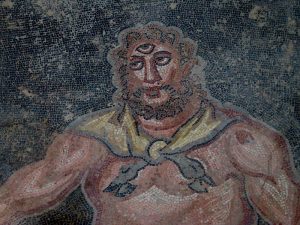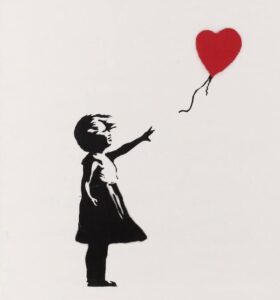WHY MEMES MATTER
5 min read
In recent years we have witnessed an exponential growth of memes on the net. In most cases memes are funny cartoons that became a part of the teen pop culture and even beyond. To be fair, they are images which date back to 1919, when the first satirical cartoon was published in the English magazine named Wisconsin Octopus.
The term “Meme” boasts an academic origin thanks to the scientist Richard Dawkins, the author of the famous text “The Selfish Gene”. According to the evolutionary perspective of the British biologist, the meme is a basic unit, a pattern of human behaviour which can be maintained over time and it can spread through culture in the same way as the genes control the individual so that he takes all his actions with the purpose of the preservation of his own genetic heritage.

Platonically speaking, the meme is an element absorbed through imitative processes and it leads the generations, but it can also divide them, or it can be the springboard to instruments, perspectives, more comprehensive horizons, like an egg is brooded extremely carefully until the death and its hatching will be a prerogative of the future individuals.
So, it is clear that the meme, as we know it today, is an essential folk element of our everyday life and it is also a real cultural expression of what the society does, thinks and lives. Indeed, the keystone of the meme is its virality because it is, by definition, a representation understood by most people or alternatively circumscribed or delimited to specific environments in which cultural pressures push people to understand the meaning of the meme.
The meme joins today’s society, a more and more dynamic, uncontrolled, and alienating community and also strikes its bulimic, oppressive demands and all the unattainable standards by offering an intimate space to think where it is possible to recover the lightness that is not superficiality, as Calvino said, but it is a feeling that allows you to fly over things from above, without weights on your chest.
The meme is cultural and folkloristic, but it is above all conviviality. It reaches different experiences, several languages, various everyday routines, and it brings them together according to a common code through the net. Although both every country and each individual has a different sense of humour, the meme is a tool to smooth the problems among territories. In the same way with cheerfulness, the meme can shed light on real problems, the effect of which not only can be evident in the everyday life of people, but also allows them to laugh at it in a cathartic way. Therefore the meme makes people rediscover that sense of community typical of lower classes before secularisation and before that getting the opportunity to have an education became common and contained some specific cultural barriers. (This is the reason why you can’t meet no more an ignorant person with whom you can have a chat).
“A laughter that will bury you all”
“A laughter that will bury you all”, that is what the Russian anarchist Bakunin said during the nineteenth century. This motto is the symbol of the student protests in 1968 and it is the same chorus of protest, the same broken voice from a significant part of young people who are looking for their own place in a world that in some ways is not youth oriented. Some social issues such as work, politics, economics are regularly criticized by people, but despite this fact millions of young men and women would like to be part of them. Castigat ridendo mores (laughing corrects morals), a way of saying how important the laughter is to condemn manners. In this way the meme, with its stinging irony, gives strength to the laughter and it also makes it a tool to describe the society in a destructive way by riding the wave of the satire, because as they often say “many a true word is spoken in jest”.
Here is the thing in a nutshell. Since the time of the Latin and Greek comedy, Aristophanes and Plautus, the satires by Juvenal and by Pietro Aretino, irony is always a way to describe the world or even just a sentiment, although the several hints that it can acquire. The meme is simply satire from the digital generation, so it is the result of an antique evolution, and it will probably keep developing over again.
But the laughter is not just bitter criticism, it is also a release. Who has the courage to laugh is almost as much a master of the world. The ability to laugh, even the ability to laugh at yourself, is a highly valued skill, maybe one of the most enlightening from humans. And the ones who are slaves to the enthralling anguish, to the nihilistic cosmic order (or better, disorder) or the ones who are hollowed from iron features marked by the chisel of the eternal seriousness, can’t understand it, or maybe they can but they prefer let other people sink because they don’t know how to find inside themselves the strength to look beyond.
And that is exactly thanks to the strength of the laughter which is capable of spreading open and altering the world, that Jorge, the blind monk from the novel named The Name of the Rose by Umberto Eco, prefers to bury every trace of the laughter theory by Aristotle. By recalling the Benedictine words as a warning to control the whole abbey and to guard its secrets, it will become clearer day by day why his role of custodian of the archaeology of knowledge will be more valuable than that of the other monks in the novel.
So, in summary, the meme is an evolution of the satire and of the funny cartoon, it represents an anthropological perspective of society, it acts as the glue between different cultures and, if it is well made, it can be very very funny.
(Cover image: an average fifty-year-old man who is reading this article)

Mi chiamo Giulia. Diplomata al liceo classico, ho in seguito conseguito la laurea triennale in Interpretariato e Comunicazione e poi la laurea magistrale in Traduzione Specialistica. Ho lavorato sia come traduttrice per una piattaforma digitale sia come interprete di conferenza in sede di udienza. Ho da sempre avuto una forte propensione per le lingue straniere motivo per cui ho deciso di intraprendere questo percorso. Sono anche appassionata di cucina, cinema ma soprattutto di film e serie tv







